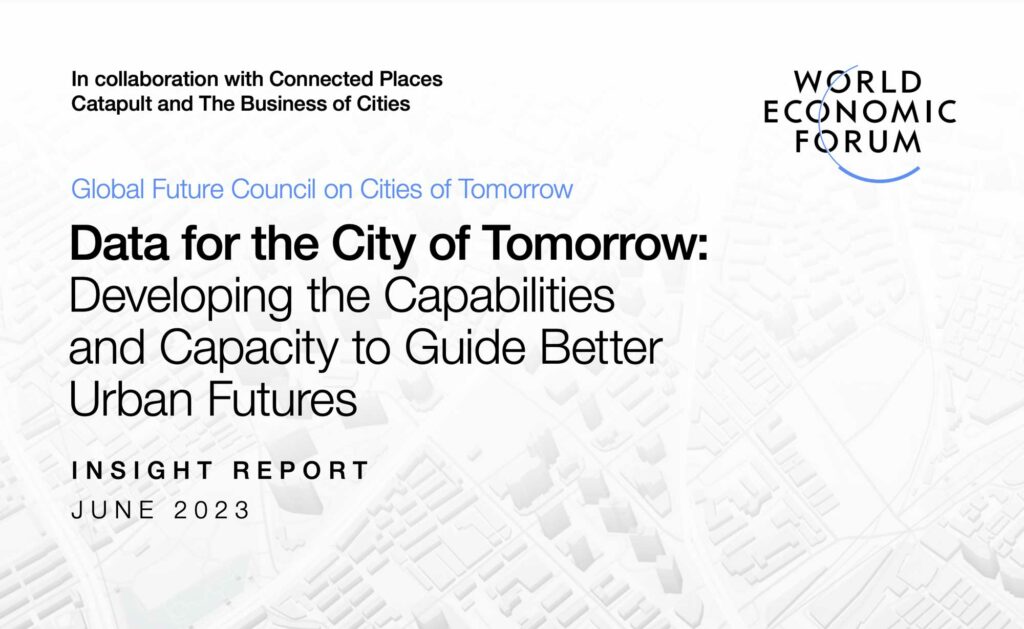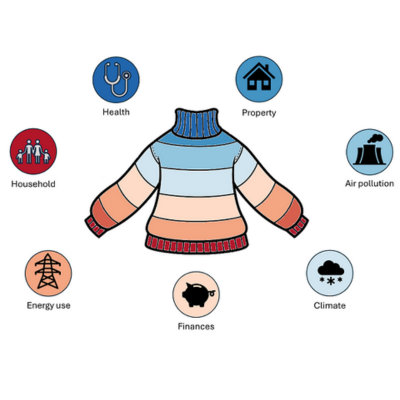A new report published by the World Economic Forum has emphasised the crucial role data must play in building future smart cities of tomorrow.
The ‘Data for the City of Tomorrow’ report – produced in collaboration with Connected Places Catapult and The Business of Cities – argues that a systems approach is the only way cities can reach their Sustainable Development Goals, and that data is key to facilitating that approach.
Each city is unique in size, budget and resource accessibility, however, with the right support, urban data can be utilised to generate valuable insights tailored to each city's unique circumstances.
Adopting a systems approach is not without its challenges, however. Here are some of the current challenges to achieving a system approach to sustainable urbanisation and how technology can help cities overcome them.

Why cities need to take a systems approach to planning
There are a number of challenges that are currently preventing cities from successfully adopting a systems approach - all of which are related to collecting, tracking and using data.
1. Closed data
Despite drives to open up public data, many cities are held back by data that is closed off and siloed into individual use-cases. These sorts of data limitations make it difficult to gain a holistic understanding of a city: If some sectors have very little data publicly available or have large data gaps, this makes it almost impossible to draw any reliable conclusions.
2. Unstandardised data
In some cases, cities have substantial amounts of data available, but the data isn’t standardised into a consistent format. When data is collected from a variety of different sources, it naturally comes in a wide variety of different formats. If there’s no consistency, this makes it difficult to analyse in a reliable way.
3. Lack of skills and capacity
Data collection, validation and processing requires specilist skills. Deriving valuable information for decision-makers and city residents relies on the ability to generate usable insights from data and dedicating time to build the resources needed to utilise it.
4. Lack of trust
Public trust regarding the handling of personal data also brings a major barrier for cities seeking to adopt a systems approach to planning. If a city’s people can’t confidently share their data, there’s no way to gain any true understanding of how they are living and using the city, and what their potential needs are.
In 2022 the Global Future Council on Cities of Tomorrow established that "systems approaches are essential to building more inclusive and climate-ready cities that can adopt innovative financing and mission-led technology’’
What is needed now?
In order to face these challenges, the report reflects the urgency for businesses to be open with data and collaborate across disciplines. With shared data and collective efforts, analysis and application of AI can be a game changer in generating more valuable insights cities can use for cross-sector decision-making and city-wide planning.
Even with current constraints, cities can make better use of existing data and still see huge benefits from more informed decision-making, such as:
- Cost & time savings,
- Greater productivity,
- Improved sustainable development standards
- Enhanced revenue generation
Data can help cities to benchmark local conditions and build context to identify where cross-sector collaboration will be most effective. A holistic approach, combining datasets, can create an evidence base to monitor the progress of initiatives, enhance the effectiveness of decision-making, streamline processes and improve services and infrastructure.
How the transport sector can support the systems approach
In the transport sector, the UK Parliament Transport Committee has recently launched an inquiry into future uses of data to improve transport.
In this inquiry they emphasise that:
“New technologies like artificial intelligence, coupled with high-quality data sets, could revolutionise how we travel and the infrastructure we travel on”
UrbanTide integrates, standardises and analyses cross-sector data in the Transport, Energy, Infrastructure and Government sectors, supporting city departments and driving development of the systems approach.
uMove data platform
uMove is an innovative AI and transport data insights platform that maps, tracks and predicts travel patterns across the UK.
By creating a single source of truth for all transport data in the UK, uMove can provide an accurate, real-time understanding of how people are using our streets today. uMove’s advanced AI enables towns and cities to predict future travel patterns so they can plan for a more sustainable tomorrow.
To find out more about how UrbanTide’s uMove data platform can help organisations overcome the challenges associated with embedding active travel into local communities, read more about uMove here or request a demo with a member of our team.






